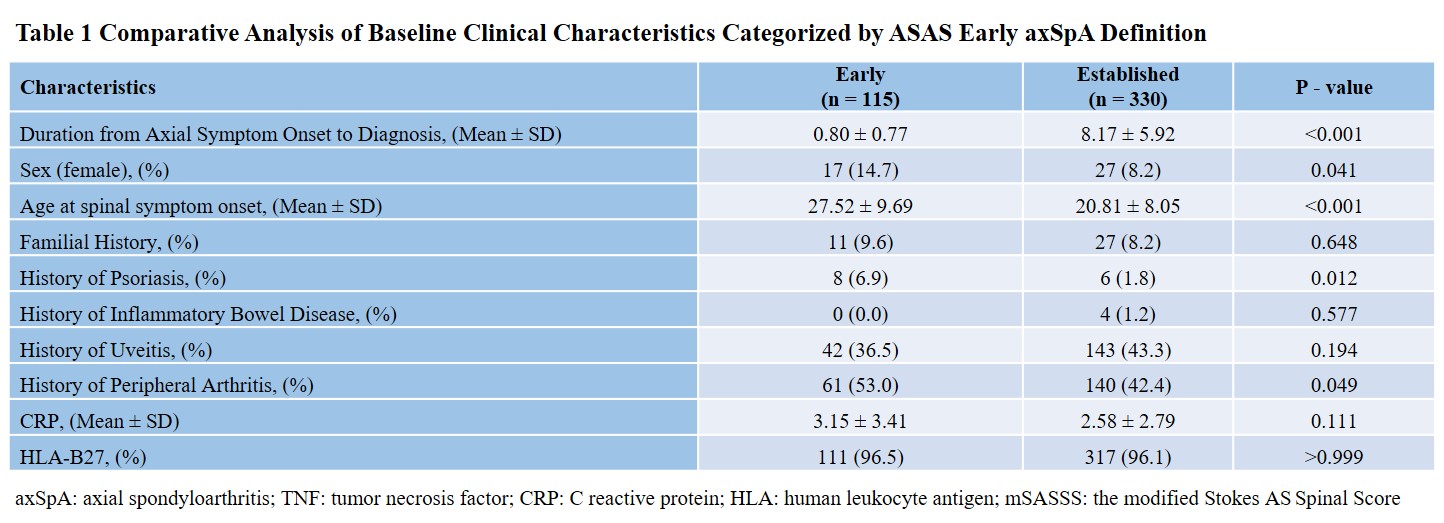Session Information
Date: Monday, October 27, 2025
Session Type: Poster Session B
Session Time: 10:30AM-12:30PM
Background/Purpose: This study evaluates the impact of the ASAS definition of early axial spondyloarthritis (axSpA) on radiographic progression over a 12-year period, utilizing the Modified Stoke Ankylosing Spondylitis Spinal Score (mSASSS) to compare early and established disease stages.
Methods: Data from the Korean spondyloarthropathy registry were used in this retrospective observational study to categorize patients into early or established axSpA according to the ASAS criteria. Radiographic progression was assessed through annual changes in mSASSS, scored independently by two radiologists. Linear regression and other statistical analyses were performed to examine the correlation between early axSpA status and radiographic progression, adjusting for relevant covariates.
Results: The study included time intervals at 0-4, 0-6, 0-8, 0-10, and 0-12 years, involving 445 patients. Results showed no statistically significant differences in mSASSS changes between the early and established axSpA groups, suggesting similar rates of progression irrespective of TNF-α blocker therapy. Both univariable and multivariable analyses demonstrated that early axSpA status did not significantly impact changes in mSASSS.
Conclusion: Our findings indicate that the ASAS criteria for early stage axSpA do not significantly affect long-term radiographic outcomes, challenging the assumption that early identification and treatment of axSpA based on these criteria alter radiographic progression.
To cite this abstract in AMA style:
Kim T, Nam B, Yang J, Bang S, Shin J, Lee S, Kim T. Long-term Radiographic Progression in Early versus Established Axial Spondyloarthritis: A 12-Year Observational Study [abstract]. Arthritis Rheumatol. 2025; 77 (suppl 9). https://acrabstracts.org/abstract/long-term-radiographic-progression-in-early-versus-established-axial-spondyloarthritis-a-12-year-observational-study/. Accessed .« Back to ACR Convergence 2025
ACR Meeting Abstracts - https://acrabstracts.org/abstract/long-term-radiographic-progression-in-early-versus-established-axial-spondyloarthritis-a-12-year-observational-study/


.jpg)